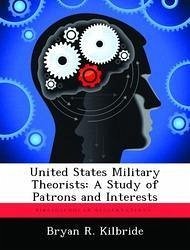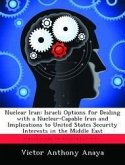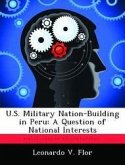The United States has been home to several influential military theorists who changed how the United States and other countries protect national interests, train, equip, and fight wars. Among these theorists are A.T. Mahan, Billy Mitchell, and more recently Arthur Cebrowski. Their theories were adopted by the United States government resulting in changes to how the nation organized for its national defense and protected its national interests. Given the scope of potential change that a new military theory can affect, it is important to understand the purpose of the theory, the process by which it advanced through the government and the stakeholders that influence the theory and shape its acceptance by the United States government. For a military officer to advance a military theory through the government and multiple stakeholders, they must move through an informal process to get their theory accepted to create policy. By understanding this process, policymakers and military professionals alike can better identify a military theorist and assist how he/she, can advance a theory to policy This informal process is the path less travelled; it requires an alignment of various tangible and intangible components to enable the officer to develop and advocate their theory to the point where the government makes policy. The theorist must have a mentor within the military that recognizes their talent and places them in positions to develop and learn to enable eventual access to policy level of the United States government. The theory the officer develops must be consistent with the foreign policy initiatives of the United States. Once at the policy level of government they must have a patron within the government that can advance the theory to the point of policy. Along the way, the officer may encounter various stakeholders operating at the policy level of government; at that level, the officer must rely on some form of military ethics to ensure they are meeting the needs of
Hinweis: Dieser Artikel kann nur an eine deutsche Lieferadresse ausgeliefert werden.
Hinweis: Dieser Artikel kann nur an eine deutsche Lieferadresse ausgeliefert werden.








